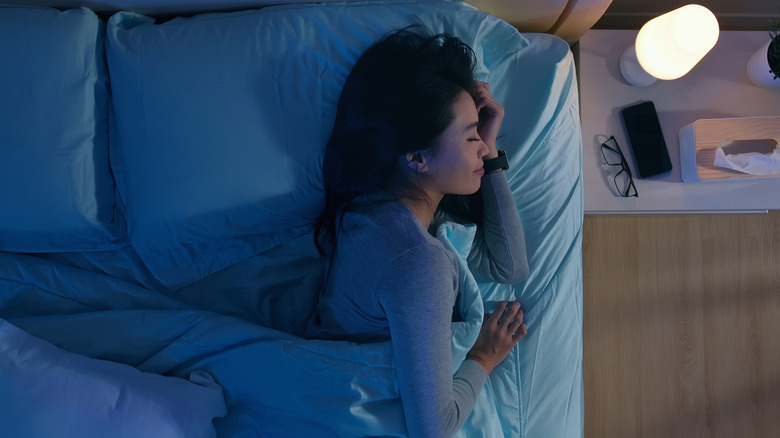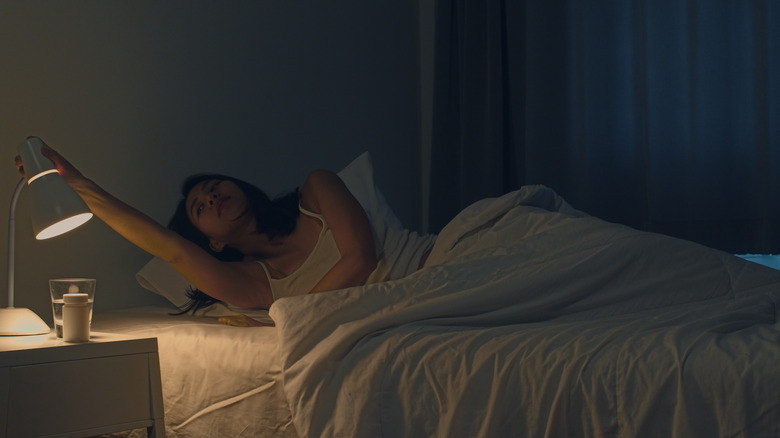Why You Should Think Twice About Sleeping With A Light On
One of the last things you probably do at night before bed is turn off the lights. It's a signal to your body and mind that it's time to settle down and get ready for sleep, and its more important that you might think. Some people choose to sleep with lights on, and experts say that choice may be impacting the quality of sleep they're getting, and their overall health.
That's because light impacts our circadian rhythm, which is the cycle that directs our sleep/wake patterns, according to the Cleveland Clinic. Light tells our brain that it's time to be awake, and suppresses the production of melatonin, a hormone that brings on sleep. So leaving the lights on may be preventing sleep even when it's time for bed.
When you do fall asleep with a light on, it will be difficult to fall into the sleep stage known as REM sleep, which stands for rapid eye movement, according to Healthline. Our body naturally cycles through three stages of sleep including light, deep, and REM sleep throughout the night. When lights are on it's difficult to reach REM sleep, which interferes with getting a proper night's rest.
There are physical consequences to sleeping with the lights on
Over time, not getting enough good rest presents risks to your overall health. The incidence of depression increases among people who don't get enough restful sleep, according to Everyday Health. Some studies found a higher risk of breast cancer and the possibility of fertility problems. Other studies have shown that people who get less restful sleep tend to eat more, leading to weight gain and obesity, (via Healthline).
But what's the solution for people who can only sleep with some light on? Luckily, red light hasn't been found to have detrimental effects on melatonin production or sleep, so use a small, red-bulbed nightlight in your room.
And if you truly have a fear of falling asleep in the dark (no shame here), try working through it with the aid of self-help books on overcoming phobias, or working with a professional therapist trained in cognitive behavioral therapy. According to Everyday Health, they can help you retrain your mind and behaviors to overcome anxiety and sleep in peace.

